Parents often try to snuck vegetables or fruits into their children’s porridge or similar mushy foods. The truth is, kids do not like healthy foods, and there’s not a lot that you can do about it, except trick them into eating their greens! If you want to know a bit more about proper nutrition, tips, and tricks, as well as the importance of healthy fruits and vegetables, keep on reading! Here’s all that you should know!

Source: Today’s Parent
Contents
- Why do kids dislike fruits and veggies?
- Why you should feed them proper foods?
- 7 Reasons why fruits and vegetables are important for babies and toddlers + how to make them interested
- 5 important things to understand and remember when feeding your child
- Ready to feed your child with organic and high-quality ingredients?
Why do kids dislike fruits and veggies?
Have you ever heard of food neophobia? It is a real fear of unknown food items and ingredients that happens to little kids at the age of two and up to the age of six.
However, it is vital that you feed your kids with high-quality and delicious foods (preferably organic). This way they will end up with their needed source of minerals, vitamins, as well as antioxidants. If you want to explore some organic food options and amazing foods for babies, check out Babease.co! They have some of the most delicious complete meal formulas for your babies + they are the only brand that is made in the UK.
Why you should feed them proper foods?
Here are just some of the benefits when it comes to proper veggie and fruit-based nutrition:
- It will promote good health and prevent your child from getting sick
- It will help with his or her growth
- Helps with the immune system
- Prevents constipation
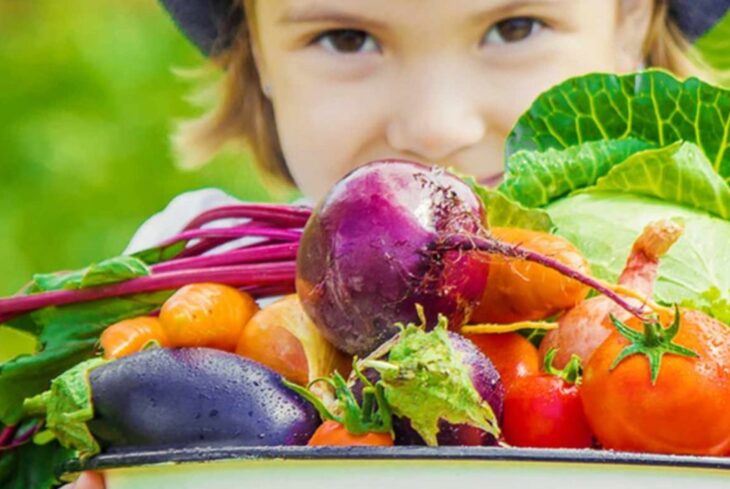
Source: MomJunction
7 Reasons why fruits and vegetables are important for babies and toddlers + how to make them interested
1. Your kids will learn by an example
Most babies and toddlers start with fruits and veggies in a form of baby foods. However, as they age they will show more interest in sweets, and they will refuse new veggies. This is where you should come to save the situation, and help them learn from example! Enjoy some broccoli in front of them, and they may ask for some as well.
2. What are the actual benefits of fruits and veggies?
Your kids will need fiber, a lot of it. Not only that, but they should have enough vitamin C and folic acid in their system. During this colder time and where everyone is prone to catching COVID, make sure to stack some fruits and veggies since these will help with their immune system and overall health.
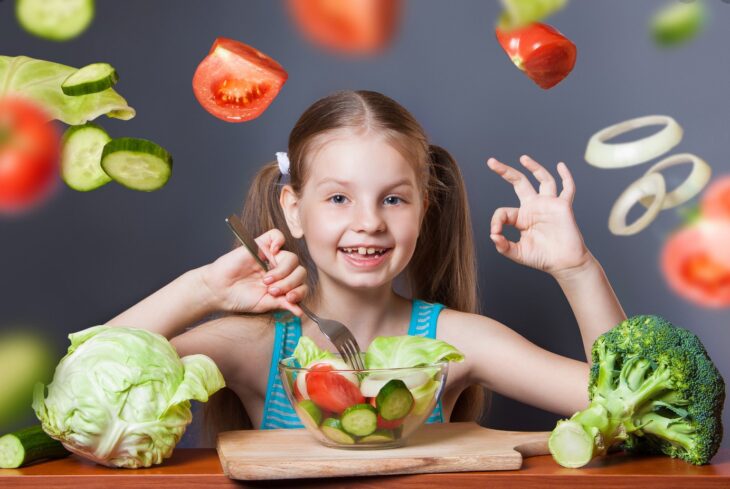
Source: Radio Nursery
3. Slow and steady intake wins the race
Most people prefer to eat 2 fruits each day and around 3-4 veggies. This is something that our doctors recommend as well. However, kids cannot intake as much food. Let them get adjusted to this process and routine by slowly adding one new fruit or vegetable to their plate. Go for smaller serving sizes and trick them into eating a bit of something new every day.
4. Encourage them to eat more
Have different kinds of fruits and vegetables available at your home and in your fridge on a daily basis. Purchase something new each day and keep things interested, as well as colorful! How to encourage your kids to eat more?
- Make your presentation interesting
- Go for loads of different colors
- Ask them to choose between 2-3 different ingredients or items when cooking or shopping
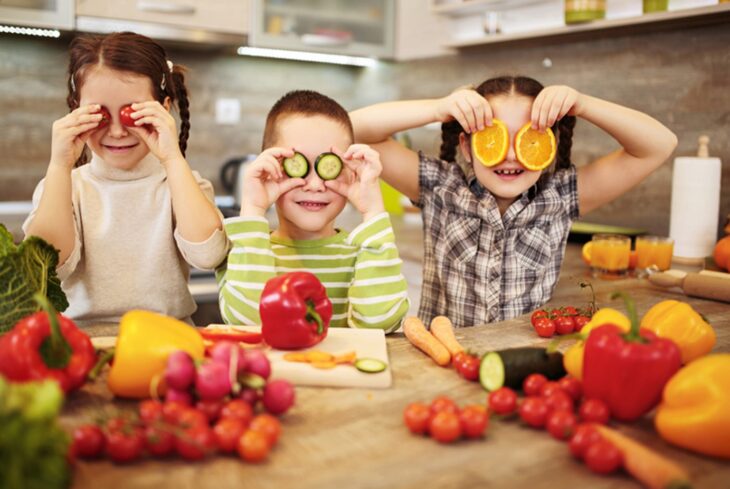
Source: Health News
5. Ask them to participate
Let your child play with fruits and vegetables that you have at home. Ask them to describe what is it that they are holding, and ask them to cook or meal-prep with you. If they are really little you can teach them colors and enjoy this little conversation! Kids love to browse through and touch new food items + this also helps with their imagination and creativity level.
6. Create a delicious snack
A lot of kids want their foods to look colorful, rich, as well as unique. No one likes stacked apples or potatoes. This is why you should create some homemade DIY plates, such as:
- Corn on the cob
- A pumpkin soup
- Homemade yogurt
- Fruit juice
- Colorful salad
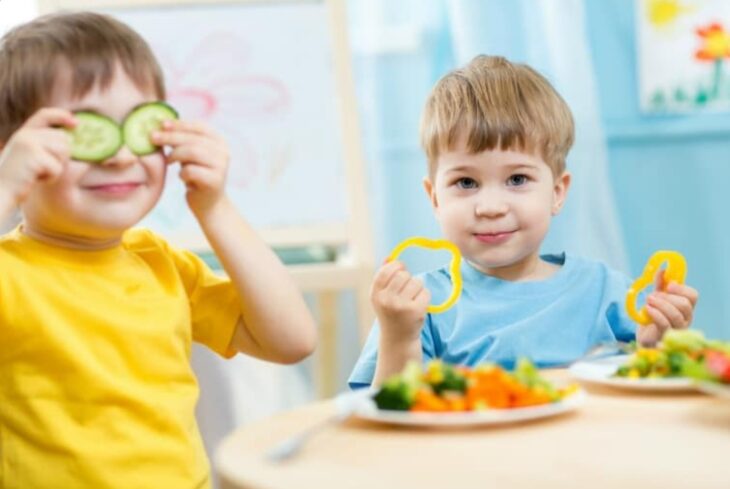
Source: The Six O’Clock Scramble
7. Stay persistent
Do not give up on your first try, and remember that practice makes everything perfect! Your toddlers will slowly adjust to any new regimens, as long as you don’t let them get addicted to sugar.
PS: There is a general rule that says that your child needs to see a specific fruit or vegetable 10 or more times before they are ready to try it! Remember this and give them time.
5 important things to understand and remember when feeding your child
1. Do not forget to give them water
Although we believe that fruits and vegetables are important, they are not as necessary and as important as water. Keep your child hydrated, and make sure that they have their little water bottle with them at all times.
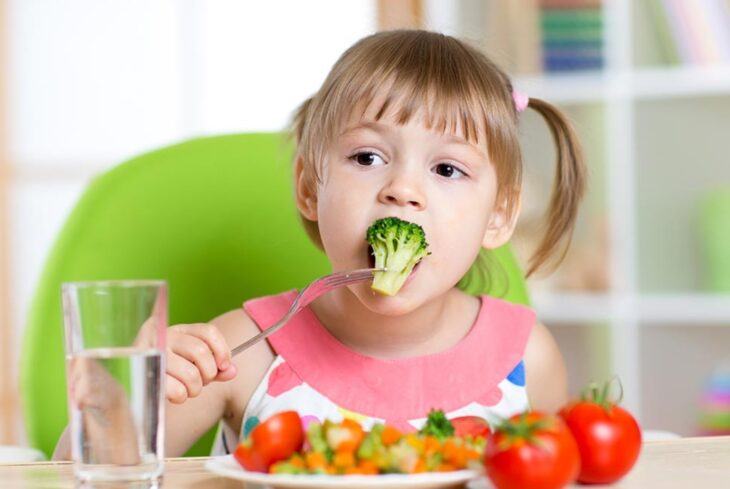
Source: FirstCry Parenting
2. Do not give them fruit bars
These are high in sugar, and quite low in fiber and fat that your child needs for their overall dental health. Rather give them a crunchy frozen fruit and trick them into eating something sweet, delicious, yet healthy!
3. Wash your foods
Wash everything for 10 seconds (at least) after purchasing it and bringing back home. Your child can have a sensitive stomach + it is important to get rid of any microbial contamination.

Source: MamaSezz
4. Watch out for the current season
Only buy food items and ingredients that are currently trending, and which are not out of season. These are usually also quite pricey + hard to get.
5. Supervise your toddlers
Last, but not least, it is important to feed your babies and toddlers till they get used to any new supplies. This way you will reduce the risk of choking, as well as vomiting.
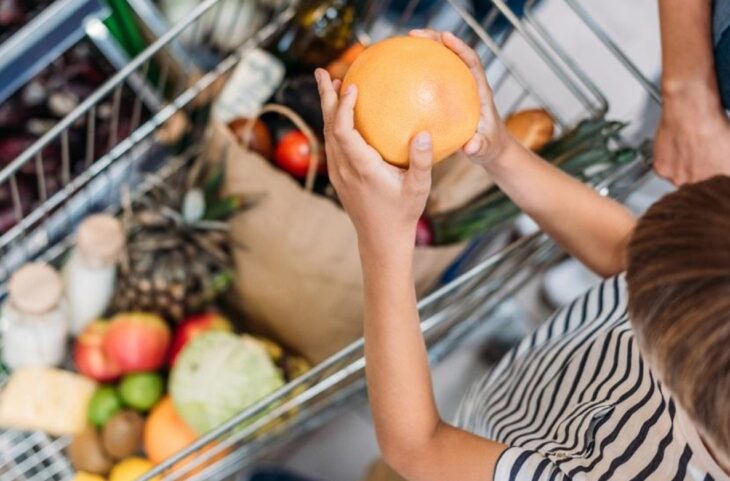
Source: Vermont Public Radio
Ready to feed your child with organic and high-quality ingredients?
After reading this article, are you encouraged way more to purchase proper food items, organic kinds, as well as recommended veggies and fruits? Simply follow our listed rules and both of you will be happy in the end!
